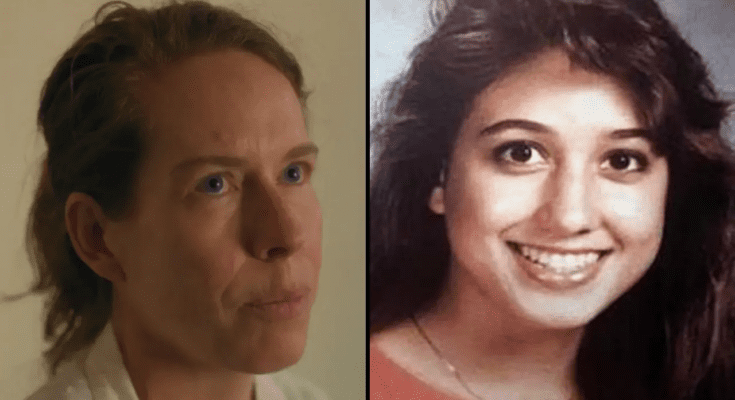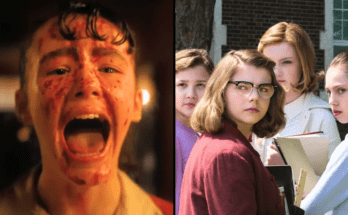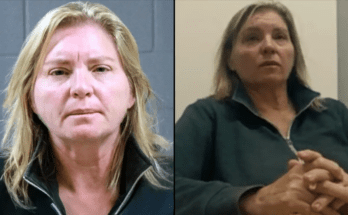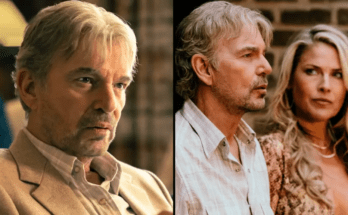A new true crime documentary on HBO is leaving viewers traumatized.
In the early hours of December 7, 1991, Austin police discovered a scene that would haunt the city for decades.
Four teenage girls – Amy Ayers, 13; Eliza Thomas, 17; Jennifer Harbison, 17; and her sister Sarah, 15 – had been brutally murdered at an I Can’t Believe It’s Yogurt! shop in northwest Austin.
The girls had been bound, gagged, shot execution-style, and left to burn as the perpetrators set the shop ablaze.
More than three decades later, the case remains unsolved, but its impact reverberates through every corner of Austin’s collective memory.
HBO’s new four-part documentary series, premiering August 3, doesn’t promise answers to the crime that has baffled investigators for over 30 years.
Instead, director Margaret Brown delivers something perhaps more valuable: a profound meditation on grief, justice, and the ways a single act of violence can ripple through generations.
The A.V. Club highlighted the series’ self-awareness about the genre’s ethical complexities, noting how it acknowledges ‘the guilt that comes – or at least should come – with wanting to watch these sorts of tragedies unfold’ as entertainment.
Heaven of Horror gave the documentary high marks, calling it: “one of the best true crime documentaries I have watched due to covering so many aspects, and always focusing on the victims,” while also praising its examination of how ‘these murders of four white teenage girls got more attention than any other murders.’
The Yogurt Shop Murders case became notorious not just for its brutality, but for the investigative missteps that followed.
Over 50 people have confessed to the crime over the years, including multiple false confessions that derailed the investigation and sent innocent men to prison.
The series examines the controversial role of Austin Police Detective Hector Polanco, described as having a ‘magic touch’ in interrogation rooms by Texas Monthly.
Polanco was removed from the case after allegedly coercing false confessions, and was later kicked off the force entirely amid mounting misconduct allegations.
Though Polanco declined to participate in the documentary, his former colleagues speak candidly about how his methods compromised the investigation.
Two men, Robert Springsteen and Michael Scott, were convicted of the murders in the early 2000s based largely on their confessions.
Springsteen was sentenced to death, Scott to life in prison. Both convictions were later overturned on constitutional grounds, and the men were released in 2009 when DNA evidence pointed to an unknown suspect.
The DNA from an unknown male perpetrator remains the investigation’s most significant lead.

Brown, an Austin resident and acclaimed documentary filmmaker behind Descendant, initially approached the project with a cinematic eye, envisioning something with the eerie, unsettling quality of David Lynch’s work, per the Guardian.
The archival footage from early 1990s Austin, with its distinctive counterculture aesthetic, seemed to offer that possibility. But meeting with the victims’ families changed everything.
“I felt it so deeply, their pain,” Brown reflects. The weight of sitting with parents and siblings, still processing unimaginable loss, shifted her entire approach.
What emerged is a series that prioritizes humanity over sensationalism, treating the victims as more than just names in a cold case file.
The documentary features extensive interviews with the families who have lived with this tragedy for over three decades.
Barbara Ayres-Wilson, mother to victims Jennifer and Sarah Harbison, provides some of the series’ most powerful moments as she recounts not just the night she learned of her daughters’ deaths, but the years of advocacy, hope, and heartbreak that followed.

Perhaps uniquely among true crime documentaries, this doesn’t shy away from examining its own genre.
Brown incorporates footage from filmmaker Claire Huie, who attempted to make a documentary about the case in 2009 but abandoned the project when it became too emotionally overwhelming.
Huie eventually left filmmaking entirely, becoming a meditation teacher.
The psychological toll extended to Brown’s own production.
A24, the film’s production company, paid for trauma therapy for the editorial team, who were experiencing nightmares from working with the case materials, Variety reports. Brown’s cinematographer collapsed twice during filming.
“A24 paid for some of [the film team’s] therapy because it is really hard on the system if you take it in,” Brown explains.
The crime scene photos were so disturbing that her editorial team refused to let her see all of them, warning they would ‘haunt you for the rest of your life.’
The Yogurt Shop Murders case has become what Brown calls ‘part of the fabric of Austin.’
Billboards seeking information about the victims once dotted the city. The tragedy inspired songs, buttons, coffee mugs, and countless theories debated at parties across town.
Brown offers one piece of advice to viewers: don’t binge all four episodes in one sitting.
When showing the series to the victims’ families, the production team included what amounted to a trigger warning against watching all episodes consecutively.
“It’s not a binge,” Brown emphasizes to Vanity Fair. “I don’t recommend that.”
Watch the trailer for Cold Case: The Tylenol Murders here…
Cold Case: The Tylenol Murders is available to stream on Netflix.
Netflix’s Latest True Crime Doc Is So Disturbing That People Can’t Sleep After Watching
Idaho Murders Documentary Finally Answers One Question Everyone’s Asking
The post New True Crime Documentary Traumatizing Fans appeared first on It’s Gone Viral.
Tags: #True #Crime #Documentary #Traumatizing #Fans



